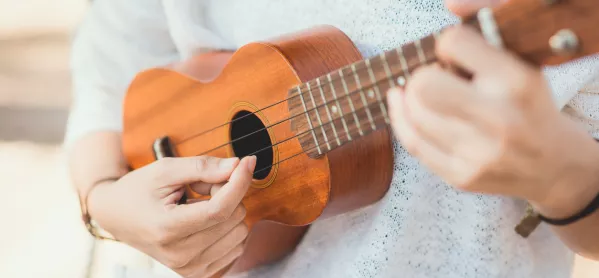It’s raining again. And that means yet more wet playtimes.
But, in the middle of one of the many downpours, in walks a bubbly peripatetic music teacher. Within 20 minutes, she has 30 Year 3s making music with a ukulele they have just been introduced to.
A discernible tune is emanating from the classroom, and everyone is smiling the broad smiles of success and enjoyment.
What a feeling it is to watch a truly skilled teacher at work.
Unloved and unnoticed
This teacher is like thousands who travel between schools, often unloved and unnoticed by the schools they visit. They share a passion for their subject and a belief that children should learn both to play and to appreciate music.
And yet, according to British Phonographic Industry, a trade body representing the UK’s recorded music sector, there has been a 21 per cent reduction in music provision in state schools over the past five years.
Sadly, in this same time period, there has also been a 7 per cent increase in music provision in private schools. Perhaps that sums up the situation.
The same research also found that a fifth of all schools in the state sector had no music provision at all. Whatever happened to learning an instrument at school?
The bedrock of so much of our culture is music. And yet we see it now as a peripheral subject.
The government will, of course, point to the 123 music hubs, which do receive government funding and do a great job. But, of course, they do not serve the whole of the country and each would like to do more.
And what about the peripatetic teachers, who strongly believe in what they are doing, yet live precariously, from contract to contract? No matter how little love they are shown, they are determined to ensure that children receive the best music provision possible.
An unimaginable life
I cannot imagine my life without music, and yet we are denying generations of children the joy of both playing and listening to it.
Once again, the bigger picture dominates: a lack of finance and a curriculum that is subservient to the all-important Sats results.
The difficulty for these peripatetic music teachers is enormous but we must ensure they continue to do what they do naturally.
Imagine, if you will, what it must be like to try teaching a class of 30 kids to play the ukulele…and then another class. And then to keep going for the next two hours before moving on to another school and doing it all over again.
It takes a remarkable person to be able to do that. Please: let’s have more of them.




